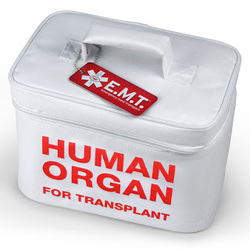|
1/24/2014 0 Comments A market for organs: an exercise in the free market or an exploitation of the poor? By: Cassi Kirkland Since the advent of transplant surgery in 1954, the problem of finding organ donors has become more and more apparent. Most often, family members of the patient donate organs like kidneys or livers, but there are complicated compatibility tests which can prevent such family member donations. In these cases, those waiting for kidneys or livers must add their names to the waiting list. In 2012, 95,000 Americans were on the waiting list for a kidney, but only 16,500 kidney transplant operations were performed. In an article in the Wall Street Journal, Gary Becker and Julio Elias make a case for a market for organs. They argue that this would drastically decrease the wait time, and allow the supply of organs like the kidney to equal the demand of those on the waitlist. In theory, the idea of a market for organs makes sense: more people will donate if they are compensated for their time and organs. But this begs the question: who will be the primary suppliers in this new market? You could argue that only those in desperate need of money would supply their organs, and what would that do the divides between rich and poor? It’s possible that such a system would lead us on a path to some dystopian science fiction future, where human worth is measured in dollars. The most desperate in society could end up being unethically exploited for their body parts, while the rich benefit. On the other hand, Becker and Elias envision a market that prevents such exploitation of the poor. They advocate for measures like a three month wait time between the decision to donate and the actual surgery, access to counselors, and compensation for both the donated organ and the recovery time from a transplant surgery. They cite Iran’s market for kidneys as an example that such a system would work. In Iran living donors can sell their kidneys for about $4,000 and the waiting time for a kidney donation has been “largely eliminated.” In the end, it might come down to choosing the lesser of two evils. We either accept a system where nearly 780,000 people have a drastically lower quality of life on a transplant list, or bring in a new system that could potentially target poor members of society. image: http://nphumour.blogspot.com/2013/09/transplant-charitys-gala-silent-auction.html
0 Comments
Leave a Reply. |
WELCOME, UMICH SCIENTISTAS!
CAMPUS PICS
WHAT'S NEWUPCOMING EVENTSPAST POSTS
October 2022
SORT BY TAG |
The Scientista Foundation, Inc. All Rights Reserved © 2011-2021 | Based in NY | [email protected]
The Network for Pre-Professional Women in Science and Engineering
The Scientista Foundation is a registered 501(c)(3) -- Donate!
The Network for Pre-Professional Women in Science and Engineering
The Scientista Foundation is a registered 501(c)(3) -- Donate!


 RSS Feed
RSS Feed